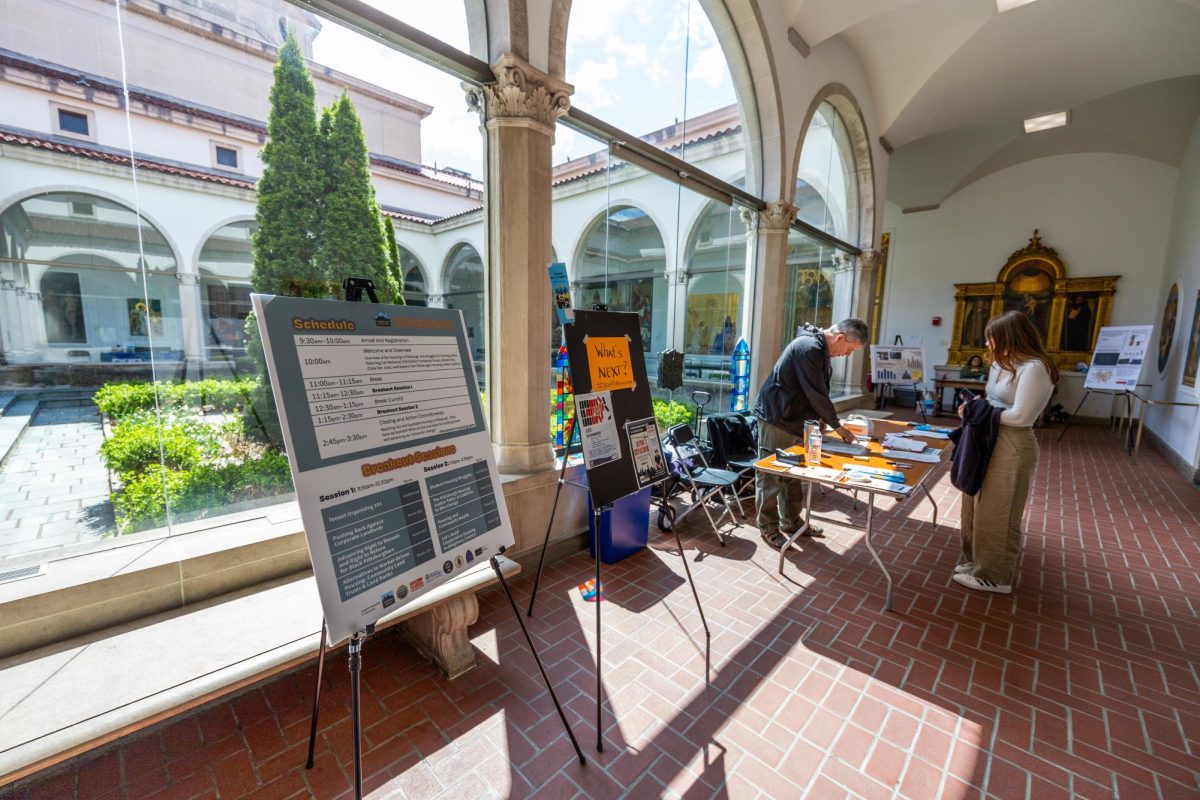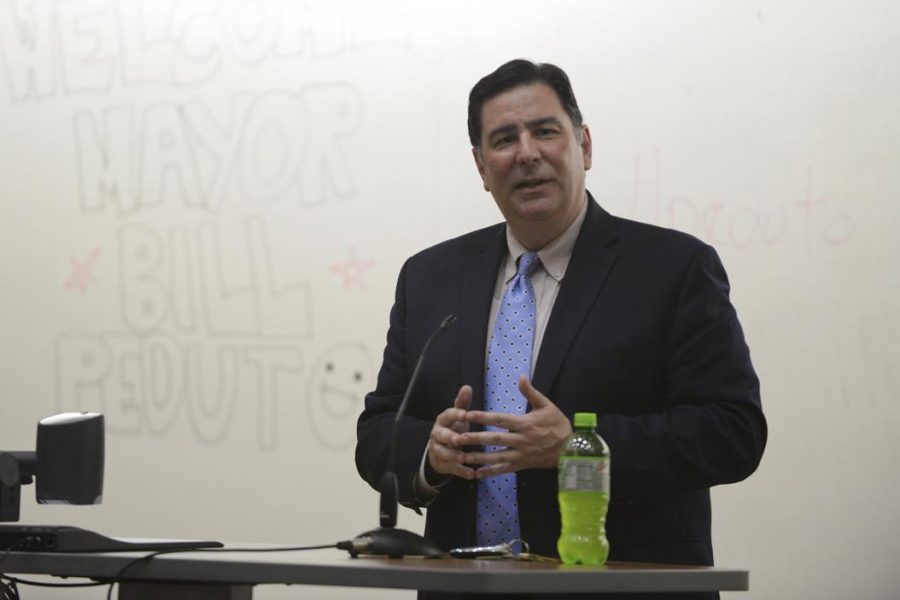Pittsburgh is the model city for the 21st century, and current college students are poised to play a key role in building it, Mayor Bill Peduto told students Tuesday night.
In a speech to the members of the Pitt College Democrats on Tuesday, Peduto talked about the Steel City’s future, placing a heavy emphasis on its commitment to reinventing itself through innovation, mostly in the transportation industry.
“From that sleepy little western frontier, to the industrial giant, to the economic collapse, to the rebirth,” Peduto said. “That’s where we’re at in Pittsburgh’s history.”
In August, Pittsburgh became the first city to introduce driverless Ubers. Although Peduto said he is proud of the innovation, he said he did not think the autonomous cars would replace public transit.
Focusing a significant amount of the evening’s direction on biking and public transit, the Mayor elaborated on the need for better and more reliable buses, part of his sweeping vision for modernizing public transportation in the city. With everything from driverless cars to buses to bike lanes, Peduto said his plans also include a new bus system called Bus Rapid Transit, which will primarily run down Fifth and Forbes Avenues from Downtown to Oakland.
BRT, mainly sponsored by Sustainable Pittsburgh, would include low-floor buses as well as fare collection stations at the stops themselves to reduce the time passengers spend at bus stops. The system, however, is still in the planning stages.
“It has fewer stops and works like a subway with wheels,” Peduto said. “It runs on a very highly efficient, low time basis.”
According to Pittsburgh BRT’s website, the Pittsburgh Port Authority and its contractors submitted a formal BRT plan to the Federal Transit Administration in the spring of 2013.
At Tuesday’s event, Kevin Burk, president of the College Democrats, said he considers Pittsburgh a “fairly bikeable” city but prefers the city bus system because it’s easy to use.
“If I really need to get anywhere, I think it’s very easy to get around,” Burk said. “I mainly use the buses [because] I don’t really have a car.”
Although he is not yet done with his term, which is set to end in 2018, Peduto said he wants his administration to be remembered for making Pittsburgh a bikeable city as a way to be more eco-friendly.
But in order to increase biking, he said the bike lanes need to be safer. A common complaint the mayor hears from citizens is from people age 50 and up who want to use the bike lanes but are terrified of being hit. Last week, a cyclist was struck and killed by a vehicle on West Carson Street.
Peduto described a protected bike path that will stretch from Oakland to the Point downtown, which he believes will motivate more people to bike.
“[That] will open it up for people my age who are scared as hell to be on the road on a bike,” Peduto said.
Ethan Baker, a senior neuroscience major, said that even though he bikes all over the city, he avoids areas around Pitt’s campus.
“The protected bike lane on Penn through the Strip is great,” Baker said. “[But] Oakland is the worst area to bike anywhere in the city.
Since last November, when Pitt professor Susan Hicks was killed after a car struck her bicycle, organizations such as BikePGH have been pushing for the city to put bike lanes in Oakland and surrounding areas. On Sept. 1, the Pennsylvania Department of Transportation announced that it was partnering with the city, Carnegie Mellon University and Whitman, Requardt and Associates in a plan to put bike lanes on each side of the road from Craig Street to Beeler Street as well as adding safety buffers to existing bike lanes.
Peduto ended the evening by shifting his focus from planning to inspiring, by elaborating on the importance of student involvement in political campaigns. He encouraged students to volunteer for a campaign or apply for an internship in the city government. When it comes to politics, Peduto said Pittsburgh is “ground zero.”
To emphasize the importance of student involvement in politics, Peduto told a story about a man named Joe Barker.
In the 1800s, Barker was a rude and passionate street preacher who focused his hatred on immigrants and Catholics, according to Peduto. The police arrested Barker during one of his public rants, and Barker decided to run for mayor, while imprisoned, as a candidate for the “Anti-Catholic” party.
Barker won.
During his one-year term from 1850-51, Barker fired the police officers who’d arrested him and hired in a new staff of officers, according to Peduto. He had the bishop of the Catholic church imprisoned, after which the bishop’s church burned down and the police caught no suspects. Barker’s term caused religious and social strife in the city of Pittsburgh.
Peduto linked Barker’s story to this year’s election with adage that history tends to repeat itself.
“The times that we think are the most awful times in politics are just an example of what happened before. It’s a pendulum that swings back and forth,” Peduto said. “Your role is to help to push it in the right direction.”



